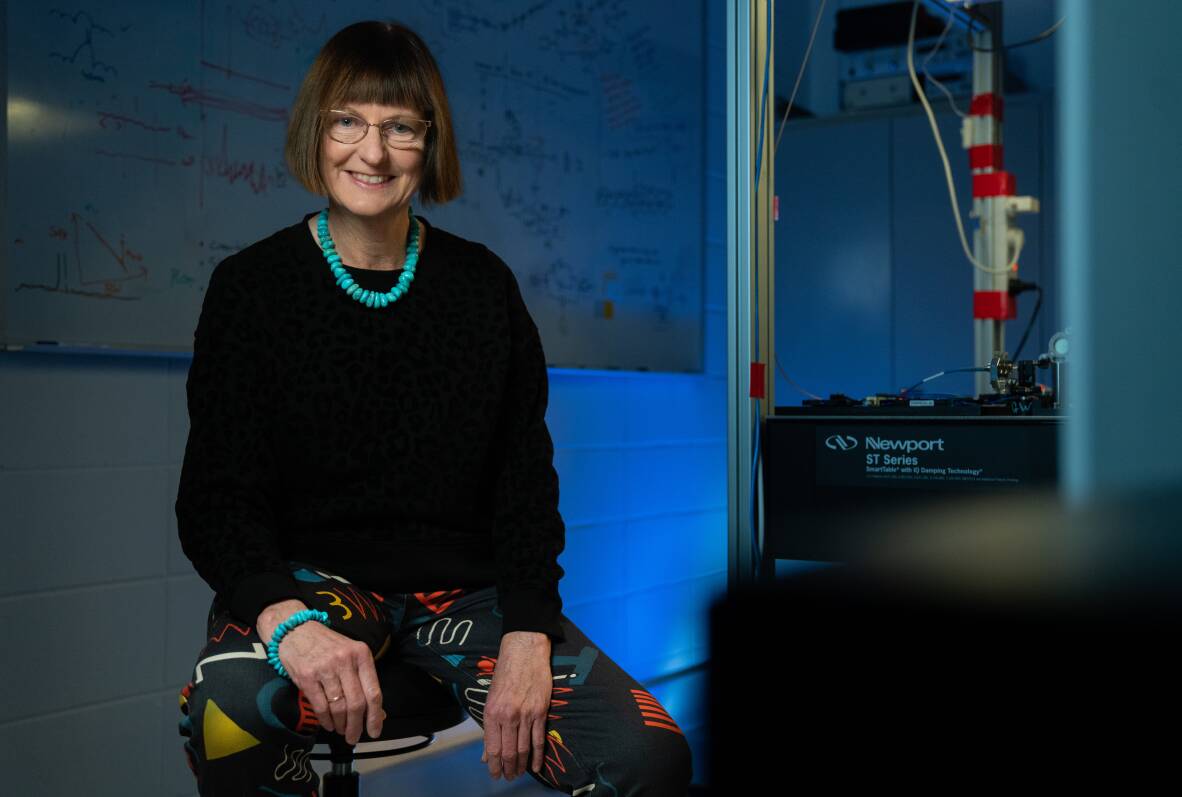
Twenty five years ago gravitational wave advancements happened overseas, now Australian scientists are playing a pivotal role in a field with potential to unlock the secrets of the universe.
Professor Susan Scott, a theoretical physicist at the Australian National University, said there's never been a more exciting time to be involved in the discoveries.
"From the time Einstein produced his theory of general relativity, it was almost exactly 100 years until we detected gravitational waves," she said.
"And then all of a sudden the floodgates opened."
Professor Scott was pivotal in Australia's participation in detecting the first gravitational waves in 2015, and the development of the science in Australia.
Gravitational waves, which are ripples in space and time caused by massive cosmic events, could allow scientists to look back to the beginning of time.
To do so requires detection of the type of gravitational waves produced after the Big Bang, Professor Scott said.
"This is a new form of observation we've opened, it really paves the way for exploring and understanding the rest of the universe," she said.
Professor Scott received the prestigious Blaise Pascal Medal in Brussels on Wednesday, an annual award from the European Academy of Sciences.
The first Australian to receive the award, Professor Scott was recognised for contributions to the advancement of physics.
She said she hoped it went some way in showing Australian girls they could achieve amazing things in science and shape the world of scientific discovery.
"In Australia and across the world, we still have a critical lack of women in science," Professor Scott said.
She said, while things had improved, much more was needed to ensure greater representation and equity.
"We need greater diversity and representation in science and at the global decision making tables where science policy is determined," she said.
"Greater representation and diversity means a greater and more diverse pool of ideas and thinking, which means better science and better overall outcomes."
When back on home soil, Professor Scott will return to unlocking the mysteries of neutron stars.
She said mountains formed on the small spinning stars produce a continuous stream of gravitational waves.
Waves which hold the stars' secrets.
"If we can detect those waves, the sort of material they're made of, their real size and masses could be understood," Professor Scott said.
"It's just such an exciting field to be in."
We've made it a whole lot easier for you to have your say. Our new comment platform requires only one log-in to access articles and to join the discussion on The Canberra Times website. Find out how to register so you can enjoy civil, friendly and engaging discussions. See our moderation policy here.







